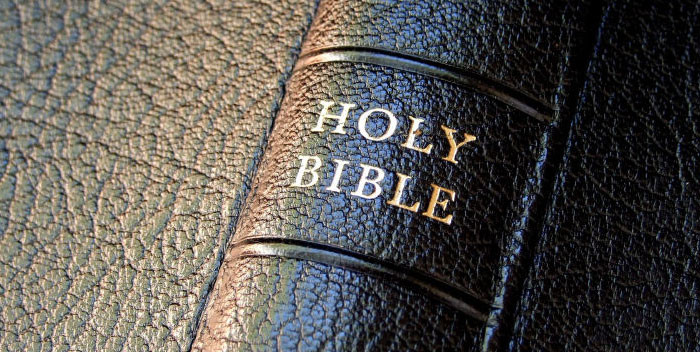POLITICAL FREE SPEECH – What May Pastors and Churches Do?
Pastors, Churches and Politics
by Mathew D. Staver, Esq.
A growing number of prominent evangelical pastors have been publicly expressing their biblical and moral views on such social and political issues as traditional marriage, abortion and cloning. In his weekly, personal editorial column known as the Falwell Confidential, Dr. Jerry Falwell compared and contrasted the positions of presidential candidates George W. Bush and John Kerry. He personally endorsed President George W. Bush, stating that he could not imagine any other choice. Barry Lynn, with the ultraliberal Americans United for Separation of Church and State, complained that Falwell had “crossed the line” by allegedly violating IRS rules.
Pastors in Kansas received intimidating threats from a small organization billing itself as the “MAINstream Coalition”, which warned that the group would send spies to churches on July 11, Protect Marriage Sunday. The group warned that any church urging the congregation to call their United States Senators to vote in favor of the Federal Marriage Amendment would be reported to the IRS. Jerry Johnston, pastor of the First Family Church in Overland Park, Kansas, was one of many pastors who urged church members to lobby their Senators to support traditional marriage. The threat of sending spies to churches to monitor sermons caught the attention of Bill O’Reilly, and Pastor Johnston appeared on the O’Reilly Factor to talk about this outrageous intimidation tactic.
On July 11, 2004, Dr. Adrian Rogers hosted a live, national television broadcast from his church in which viewers were asked to call specific Senators, urging them to vote in favor of the Federal Marriage Amendment. Throughout the 90-minute program, photographs of the Senators along with their contact information were displayed, and throughout the program their names and contact info scrolled along the bottom of the screen like a ticker-tape. This display of Christian solidarity over the issue of marriage irritated the liberal left because it was successful in causing several Senators to change their positions and vote in favor of the FMA.
On July 4, Ronnie Floyd, pastor of a 14,000 member church in Springdale, Arkansas, preached about the important religious and moral issues at stake in the presidential election. He also spoke of the importance of Christians being active in the political process. While he neither personally nor corporately endorsed either candidate, he did urge his congregation to vote in accordance with biblical principles.
For some evangelical pastors like Dr. Falwell, vocalizing political positions is not new, but many evangelical pastors are beginning to shed their moral laryngitis and are no longer intimidated by threats from Barry Lynn or other similar cohorts. Black churches have historically been very active in political matters, as evidenced by the fact that John Kerry and John Edwards frequently appear in the pulpits of black churches.
So, what are the permissible boundaries regarding political activity or lobbying by pastors and churches? I will first address the issue of endorsing or opposing political candidates, and then the permissible activities of lobbying for or against legislation.
Political Candidates
From the founding of the country until 1954, churches and other nonprofit organizations were permitted to expressly endorse or oppose candidates for political office. That changed when Lyndon Baines Johnson ran for United States Senate. He was opposed by a nonprofit organization (not a church), and after he won the election, he proposed legislation to amend the Internal Revenue Code to prohibit nonprofit organizations, including churches, from endorsing or opposing political candidates. The Code was amended in 1954 without any debate regarding the impact of the bill.
The Internal Revenue Code now expressly prohibits churches and other nonprofit organizations from directly endorsing or opposing political candidates. From 1954 to the present, only one church has ever lost its IRS tax-exempt letter ruling, but even that church did not lose its tax-exempt status for opposing then-Governor Bill Clinton for President in 1992.
The Church at Pierce Creek, located in Binghamton, New York (a church where Operation Rescue founder Randall Terry attended at the time), took out full-page ads in the USA Today and The Washington Times newspapers. The ads opposed Governor Clinton for President because of his position on abortion and homosexuality, and then the ads solicited “tax-deductible donations” to defray the cost of the advertisements. The Church received hundreds of contributions.
After Clinton was elected President, the IRS notified the Church on November 20, 1992, that it intended to conduct an inquiry into the Church’s activities. After negotiations with the Church broke down, the IRS revoked the Church’s tax-exempt letter ruling and the Church filed suit to get it back.
It is important to understand the critical difference between an IRS tax-exempt letter ruling and tax-exempt status of churches. Every organization, whether a 501(c)(4) (a nonprofit group that primarily lobbies) or a 501(c)(3) (a nonprofit, tax-exempt organization), must file an application with the IRS to be recognized as a nonprofit organization for purposes of the Internal Revenue Code. The IRS then issues a letter ruling specific for the organization, in which the IRS acknowledges that the organization will be recognized as a nonprofit organization, and in the case of a 501(c)(3), that contributions to the organization will be tax-deductible.
Unlike virtually every other nonprofit or tax-exempt organization, churches are not required to obtain an IRS letter ruling. Some churches have an IRS letter and some do not. What is the advantage of a church having a letter ruling as opposed to a church that does not have one? There is no substantive difference. The only difference is one of convenience. If a donor is ever audited and the IRS questioned the contributions to the church, the donor can point the agent to the letter ruling on file with the IRS. However, if a church doesn’t have a letter ruling, the church can merely produce an affidavit by the pastor, or present the church bylaws or other evidence to validate that the assembly is a church. Other than mere convenience, there is no substantive difference, as a church with or without a tax-exempt letter ruling is still tax-exempt.
So long as a church is operating and functioning as an organized church body, it is automatically tax-exempt and does not have to apply to the IRS for this determination. This distinction between churches and other tax-exempt organizations is critically important in understanding the impact of the IRS’s action against the Church at Pierce Creek.
The Church at Pierce Creek had applied for and received an IRS tax-exempt letter ruling, and the lawsuit was not designed to regain its tax-exempt status (which the Church continued to enjoy), but to receive back its tax-exempt letter ruling. The court noted that “because of the unique treatment churches receive under the Internal Revenue Code, the impact of the revocation is likely to be more symbolic than substantial.”
During the oral argument, counsel for the IRS confirmed that if the Church chose not to intervene in future political campaigns, it may continue to hold itself out as a tax-exempt organization and receive all the benefits of that status. The court also pointed out that revocation of the IRS letter ruling did not make the Church liable for the payment of taxes. The IRS also conceded during the oral argument that “the revocation of the exemption [letter] does not convert bona fide donations into income taxable to the church.” Contributions given to the Church, even contributions regarding the ad, were never taxed. In the future, if the Church wanted to reapply for its letter, it was free to do so. However, even without the letter, it retained, and continues to retain to this day, its tax-exempt status.
Other than the Church at Pierce Creek, no other church has even lost its tax-exempt letter ruling, let alone its tax-exempt status. In other words, from 1954 to the present, no church has ever lost its tax-exempt status for endorsing or opposing political candidates. This history alone should alleviate unfounded fear.
Outside of express endorsement of or opposition to candidates for political offices, pastors and churches may engage in many other permissible activities. Churches may host voter registration drives, be a host site for balloting, or host a forum where candidates address the congregation or answer questions from a moderator. Candidates visiting the church may be introduced, and political candidates may even preach in the pulpit so long as the pulpit is not used as a political forum to urge the members to vote in favor of the candidate. Churches may also distribute objective voter guides that address the candidates’ views on a broad range of issues.
Pastors can preach on biblical, moral and social issues such as homosexuality and abortion. Pastors can urge the congregation to become involved in the political process, urge them to register and vote. Pastors can acknowledge visiting candidates. Pastors can personally endorse or oppose political candidates, personally work for political candidates, and personally contribute to them. Also, a pastor’s name may appear in a published ad or letter signifying the pastor’s endorsement of the candidate, and the pastor’s title and affiliation with the church can also be listed with the notation, “Title and affiliation for identification purposes.”
Although the IRS states that a pastor may not personally endorse a candidate while in the pulpit, I believe such a restriction is unconstitutional. No pastor has ever been targeted by the IRS for giving a personal endorsement from the pulpit. My recommendation is that if the pastor wants to personally endorse a candidate, he should feel free to do so, as long as the endorsement is stated as a personal rather than a corporate church endorsement.
It should also be remembered that the restriction on endorsing candidates does not apply to appointed offices. Cabinet or judicial appointments are not political candidates for public office. Therefore, pastors and churches may expressly oppose or support individuals for appointed office.
Lobbying Activity
From the founding of the country until 1934, church and nonprofit organizations were permitted to engage in an unlimited amount of lobbying activity. Lobbying involves support or opposition to local, state or federal legislation, or constitutional amendments. In 1934, the Internal Revenue Code was amended to restrict the amount of lobbying a 501(c)(3) organization may conduct. A 501(c)(4) organization has no restriction on the amount of lobbying it may pursue, but a nonprofit, tax-exempt 501(c)(3) organization may not devote more than a substantial part of its overall activities toward lobbying. Churches are governed by this provision whether or not they have an IRS tax-exempt letter ruling.
From 1934 to the present, not one church has ever lost either its IRS tax-exempt letter ruling or its tax-exempt status for engaging in too much lobbying.
One IRS case ruled that 5 percent of an organization’s overall activity devoted to lobbying was permissible, but another case held that 15 percent was not. From these two cases one could assume the permissible amount of activity lies somewhere between 5 and 15 percent. Neither case involved a church and the IRS has indicated that there is no bright-line rule.
Even assuming the low 5 percent of overall activity is permissible for a tax-exempt organization to devote to lobbying, that is a considerable amount of activity. Take, for example, a church that opens its doors on Sunday morning for worship from the hours of 9:00 a.m. to 12:00 p.m., and then again on Wednesday evening for a mid-week service from 7:00 to 8:30 p.m. Assume that the church engages in absolutely no other activity and has no volunteer or paid staff. Thus, the church engages in worship and teaching activities for only 4½ hours per week and does nothing else. Four and a half hours amounts to 270 minutes, and 5 percent amounts to 13½ minutes. Thus, a church that only operates 4½ hours per week could devote at lease 13½ minutes each Sunday to lobbying activities. Thus, every Sunday this church could urge its congregation to contact their Senators and Representatives to vote in favor of the Federal Marriage Amendment, or any other local, state or national law, including state and federal constitutional amendments.
As you can see, when you consider all of the activities a church engages in throughout the week, it will certainly be more than 4½ hours. To determine this amount, you would need to calculate the time of all the volunteer and paid staff throughout the entire year. The substantial part test is not determined by merely looking at a particular event in isolation of others, but in conjunction with the church’s overall activities. Thus, a church could devote a significant amount of time to lobbying activities during part of the year and a small amount of time during the remainder of the year. And this is only at the 5 percent level. The 5 percent amount is only the minimum, not the maximum amount of time 501(c)(3) tax-exempt organizations can devote to lobbying. Finally, remember that no church has ever lost its tax-exempt status or IRS letter ruling for engaging in too much lobbying.
In summary, while liberal groups seek to silence pastors and churches, I would encourage pastors to throw off their muzzle and pick up a megaphone. It’s time pastors and churches became the moral conscience of the community.
POLITICAL AND LEGISLATIVE GUIDELINES FOR PASTORS AND CHURCHES
by Mathew D. Staver, Esq.
Copyright © 2000-2004
Supporting or Opposing Candidates
Endorsing or opposing political candidates
Church – No
Pastor – Yes
Contributions to political candidate
Church – No
Pastor – Yes
In-kind and independent expenditures for or against political candidates
Church – No
Pastor – Yes
Contributions to Political Action Committees
Church – No
Pastor -Yes
Appearance of political candidate at church meeting or service
Church – Yes
Pastor – N/A
Introduction of political candidates at church
Church – Yes
Pastor – Yes
Political candidate to preach or read scripture (contributions should not be solicited & message should not urge people to vote for the candidate)
Church – Yes
Pastor – N/A
Voter registration programs and campaigns (non-partisan)
Church – Yes
Pastor – Yes
Distribution of candidate surveys and incumbent voting records (avoid editorial opinions)
Church – Yes
Pastor – Yes
Distribution in church parking lot of political statements and opinions on political issues (so long as no church endorsement)
Church – Yes
Pastor – N/A
Rent or loan church mailing lists to political candidates (list must be made available to all candidates on similar terms and prices)
Church – Yes
Pastor – N/A
Church bulletin political ads at regular price and news stories
Church – Yes
Pastor – N/A
Church bulletin editorial where the pastor or staff member endorses or opposes a candidate
Church – No
Pastor – No
Church bulletin editorial regarding political issues or two different church members take opposing views on a candidate
Church – Yes
Pastor – N/A
Use of church facilities by political candidates (as long as all other candidates are allowed or invited)
Church – Yes
Pastor – N/A
Fund-raising for candidates
Church – No
Pastor – Yes
Campaigning for candidates
Church – No
Pastor – Yes
Educate members of the public about viewpoints of candidates
Church – Yes
Pastor – Yes
Discuss church doctrine pertaining to candidate views such as abortion
Church – Yes
Pastor – Yes
Granting use of name to support a political candidate
Church – No*
Pastor – Yes*
Support or oppose judicial, department or cabinet appointments
Church – Yes
Pastor – Yes
Support or oppose judicial candidates
Church – No
Pastor – Yes
Support or oppose other political appointments of nonelected officials
Church – Yes
Pastor – Yes
Supporting or Opposing Legislation
Use of church facilities by lobbying groups to discuss social issues
Church – Yes
Pastor – N/A
Rent or loan church mailing list to lobbying groups
Church – Yes
Pastor – N/A
Preach sermons on social issues and political issues and activism
Church – Yes
Pastor – Yes
Educate on political process and political/social/legislative issues
Church – Yes
Pastor – Yes
Petition drives supporting or opposing legislation
Church – Yes
Pastor – Yes
Support or oppose legislation unrelated to the church organization
Church – Yes**
Pastor – Yes
Support or oppose legislation that directly relates to the organization
Church – Yes***
Pastor – Yes
Encourage members to voice their opinions in favor or in opposition to certain legislation
Church – Yes**
Pastor – Yes
Lobby candidates to support or oppose legislation
Church – Yes**
Pastor – Yes
Distribute position papers supporting or opposing legislation
Church – Yes**
Pastor – Yes
*A pastor may include title and church affiliation in a personal endorsement along with the following notation: “Title and affiliation for identification purposes.”
**Churches and other 501(c)3 organizations may support or oppose legislation so long as such activity comprises an insubstantial part of the overall operation. A 501(c)4 organization may support or oppose legislation without any limitations.
***A church or any other 501(c)3 organization may without limitation support or oppose legislation that directly affects the organizational structure and operation of the organization. For example, a church may without limitation oppose legislation attempting to repeal the tax-exempt status of the church.



